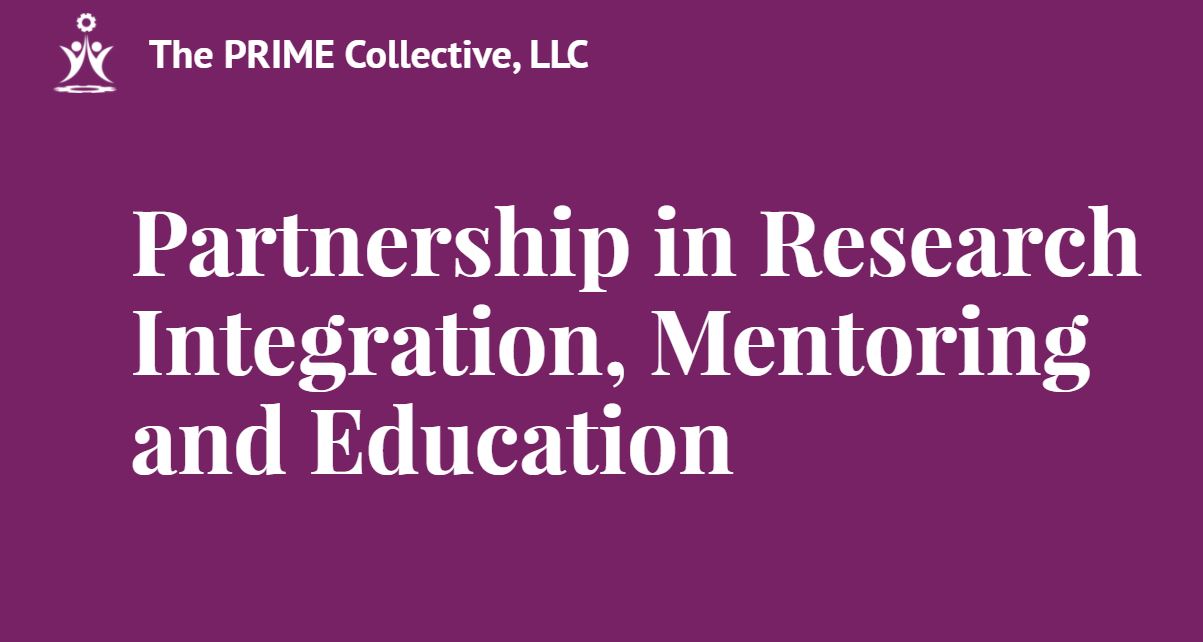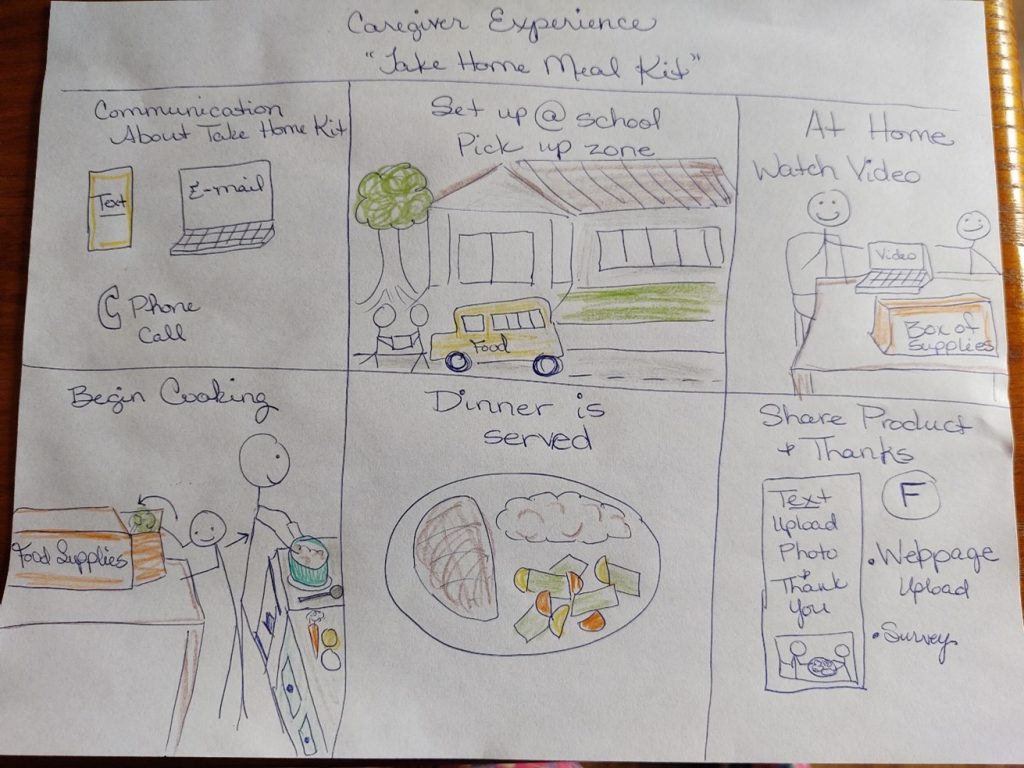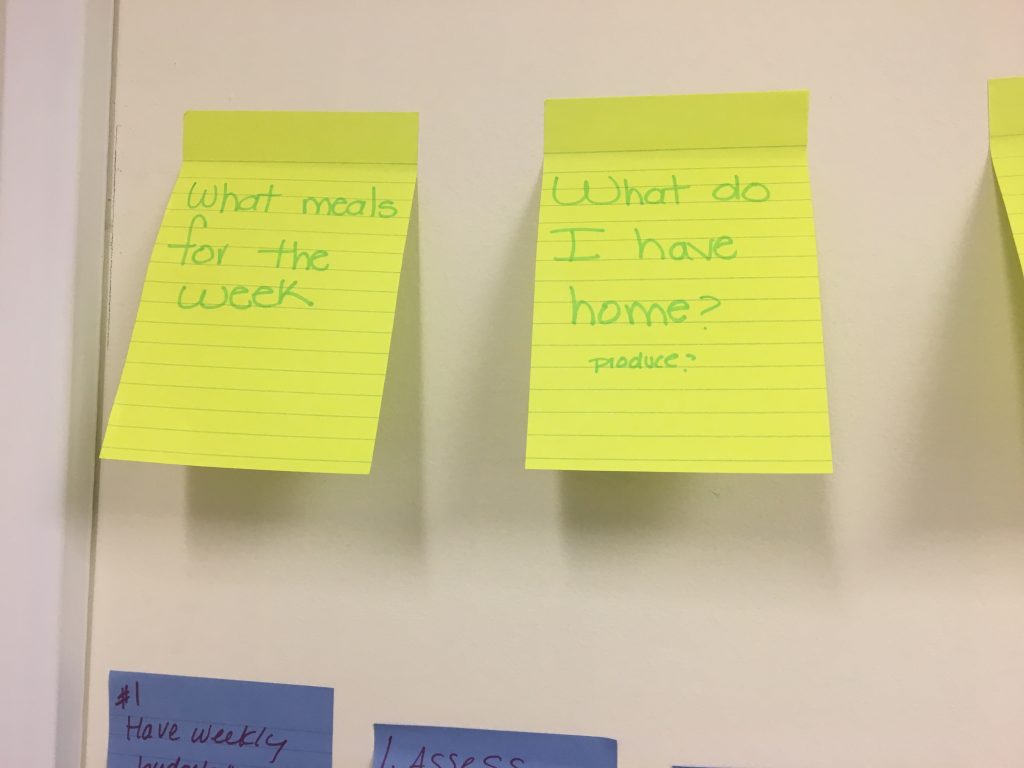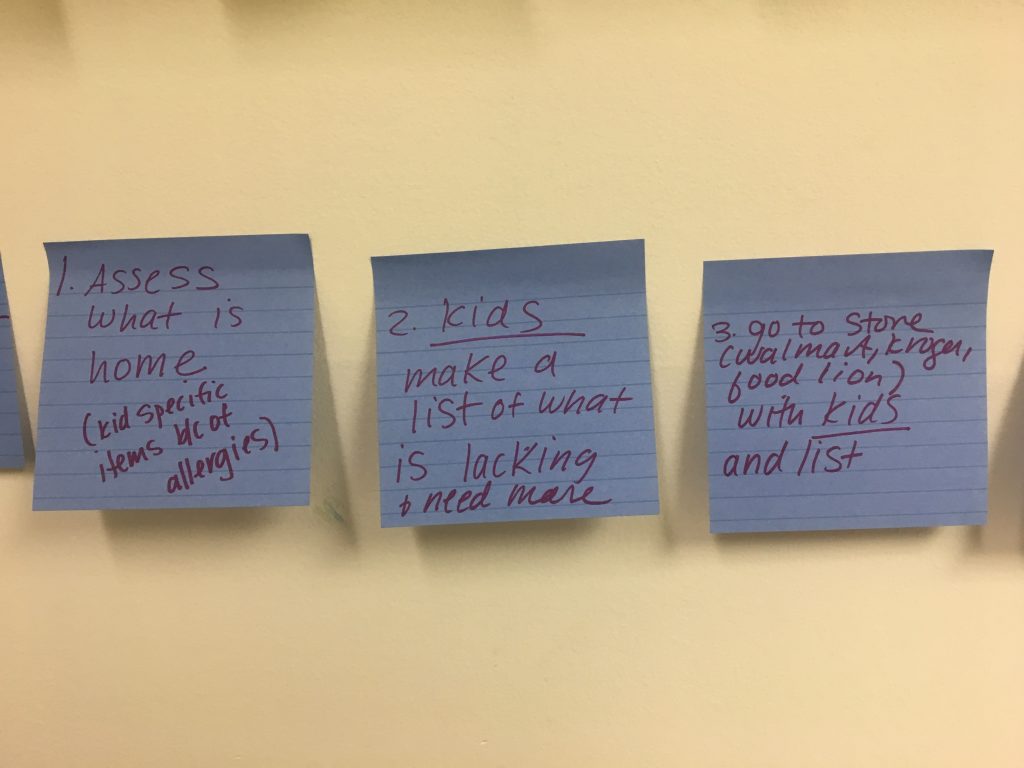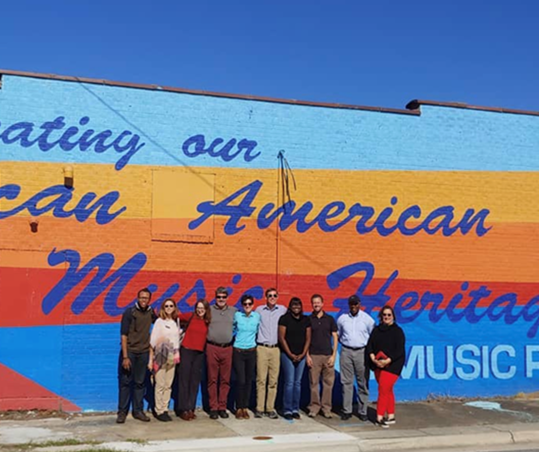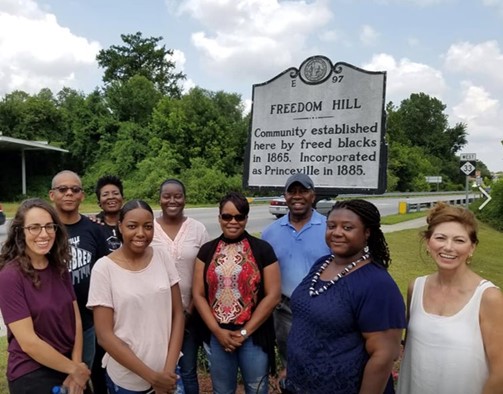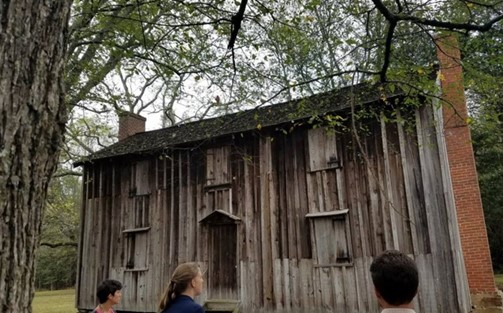Community Engagement Experience
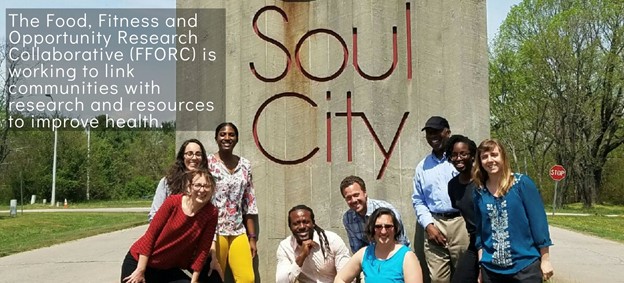
Our team utilizes many strategies to conduct research and implement programming that center community partners most affected by societal problems. These strategies include:
Engaging Community Members as Full-Time Employees
Two community members have joined us as staff members on the FFORC team.
- Rev. William Kearney and Dr. Molly De Marco have been community-academic research partners for ten years. In 2015, Rev. Kearney became our FFORC Community Field Coordinator, a full-time UNC employee. He developed to develop the Warren County Local Food Promotion Council and is a boundary spanner between communities and the academy.
- Judit Alvarado started as a community garden manager for one of the gardens FFORC supports. In 2017, Judit became an outreach specialist, a full-time UNC employee who facilitates engagement with low-resource mothers in our active living research program.
Equitable Compensation for Community Members
We work to equitably compensate low-resource community members who partner with us to implement interventions.
- County-level coordinators and community garden managers (of and in the community) compensated as independent contractors or vendors.
- We buy food and garden supplies in the communities where we partner to move more resources to those communities.
Human-Centered Design
We employ human-centered design principles to engage historically marginalized communities.
Projects using human-centered design principles include:
- Journey mapping with low-resource Latina moms to learn how they budget for healthy foods.
- Caregivers of young children to determine how to impart food skills education in various settings using journey mapping, inspiration sessions, collage activities and other strategies.
- Learn more about this project:
- Adapting Design Thinking Methods and Best Practices to a Virtual Environment: Lessons Learned and Future Considerations by Jared Bishop, Claire Sadeghzadeh, Eduardo Hernandez, Liz Chen, Alice Ammerman, Tracy Dearth- Wesley, and Molly De Marco
- Using Human-Centered Design to Test and Implement Food Retail Interventions to Promote Healthy Food Choices Among Caregivers of Young Children
- The Food, Fitness, and Opportunity Research Collaborative and Share Our Strength’s Cooking Matters convened parents and caregivers of young children (0 – 5 years old) in a series of human-centered design workshops to learn about how SNAP-Ed could center their needs and desires when developing food retail interventions promoting healthy food choices.
- The Using Human-Centered Design to Test Food Retail Strategies guide highlights the key insights and learnings from these sessions and provides two intervention frameworks prioritized by caregivers – a meal box intervention and a rewards program. The intervention frameworks were co-created with food retail stakeholders, SNAP-Ed Implementing Agencies, and caregivers using human-centered design methods. The guide will walk you through how to use human-centered design methods to select an appropriate intervention framework as well as how to test and refine the framework to your local context.
Click on each of the photos below to see examples from our journey mapping projects.
Watch our training video on how to move these ideas into action. (Click the link or click play below.)
Racial Equity Field Trips
As a team, we take quarterly trips in North Carolina to learn about the life and context of our community partners.
Locations have included:
- Town founded by former enslaved peoples: Princeville
- Former plantation: Stagville
- Franklinton Center (former site where ‘unruly’ slaves were brought to be broken)
- Greensboro Civil Rights Museum
Click below to see photos of the team on field trips.
Community Garden Projects
We have provided support and technical assistance to community garden projects. A number of these partnerships have lasted for as many as six years. Below is a video highlighting many of our community garden partners as they discuss their garden and communities.
Community Advisory Boards
We engage community members for our WAGE$ study, which is led at the University of Minnesota by Dr. Caitlin Caspi. We worked with our community advisory boards at both universities to develop a visual presentation of our findings concerning how an increase in minimum wage affects SNAP use:
The FFORC Community Advisory Board has been recently assembled. Our CAB assists us to determine how to equitably engage our community partners and compensate participants, among other tasks.
Collaborating With Community Groups
Rev. Kearney collaborates with two other highly experienced community partners, Melvin Jackson and Mysha Wynn, to start and run a non-profit to assist with community-engaged research. They developed a non-profit called the Prime Collective, LLC. We collaborate with this community-based organization to provide us advice on equitably engaging our community partners.
